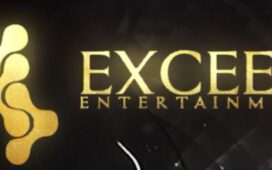The melody of a vibrant school music program can be drowned out by the harsh realities of tight school budgets. However, the benefits of a strong music education are undeniable. It’s time to turn up the volume on music advocacy and explore creative strategies to fund music programs in schools.
The Symphony of Benefits: Why Music Matters
Let’s not forget the positive impact music education has on students:
- Cognitive Powerhouse: Music stimulates brain development, enhancing memory, attention span, and critical thinking skills – essential for academic success across all subjects.
- Emotional Intelligence: Music provides a healthy outlet for emotions, fostering self-expression, confidence, and collaboration through ensemble work.
- Creativity Champions: Music ignites creativity and encourages students to explore different sounds and styles. This problem-solving skill is crucial in a world that demands innovation.
- Cultural Appreciation: Music education opens doors to diverse cultures and traditions, promoting a deeper understanding of the world.
- Lifelong Learners: Learning music requires dedication and practice, instilling a love of lifelong learning and perseverance – valuable skills for any pursuit.
Beyond Budget Blues: Funding Strategies for a Thriving Program
- Grant Groove: Explore the world of grants! Research and apply for grants offered by organizations that support music education. These grants can provide significant funding for instruments, technology, curriculum resources, or guest artist workshops.
- Fundraising Finesse: Get creative with fundraising! Organize school concerts, talent shows, or music-themed bake sales. Partner with local businesses for sponsorships or hold instrument donation drives. Every note counts!
- Community Collaborations: Build bridges with your community! Partner with local music stores to offer instrument discounts for students or organize workshops led by professional musicians. These partnerships can provide valuable resources and performance opportunities.
- Friend-Raising Frenzy: Engage your school community! Start a “Friends of Music” program to cultivate a dedicated group of supporters who provide financial and volunteer support for the music program.
- Advocacy Amplification: Become a music education champion! Raise awareness about the benefits of music education by presenting to school boards, community leaders, and parent-teacher associations. Use data and success stories to showcase the impact of a strong music program.
The Power of Advocacy: Make Your Voice Heard
It’s time to break the silence! Here are some ways to be a strong advocate for music education:
- Share Your Story: Showcase the success stories of your music program! Highlight student achievements, the impact on school culture, and positive testimonials from parents and students.
- Data Doesn’t Lie: Gather research and data that underscores the benefits of music education. Use statistics on improved academic performance, social-emotional development, and future career success.
- Connect with Legislators: Reach out to local and state legislators to advocate for increased funding for arts education programs in schools.
- Join Forces: Connect with other music educators and music advocacy organizations to amplify your voice and create a united front for music education.
The Final Note: A Sustainable Future for Music Education
By implementing creative funding strategies and becoming a vocal advocate for music education, you can ensure a sustainable future for your school music program. Remember, a strong music program is not just about notes and rhythms; it’s about nurturing well-rounded individuals with the skills and confidence to thrive. Let’s keep the music playing and empower the next generation of musicians!







